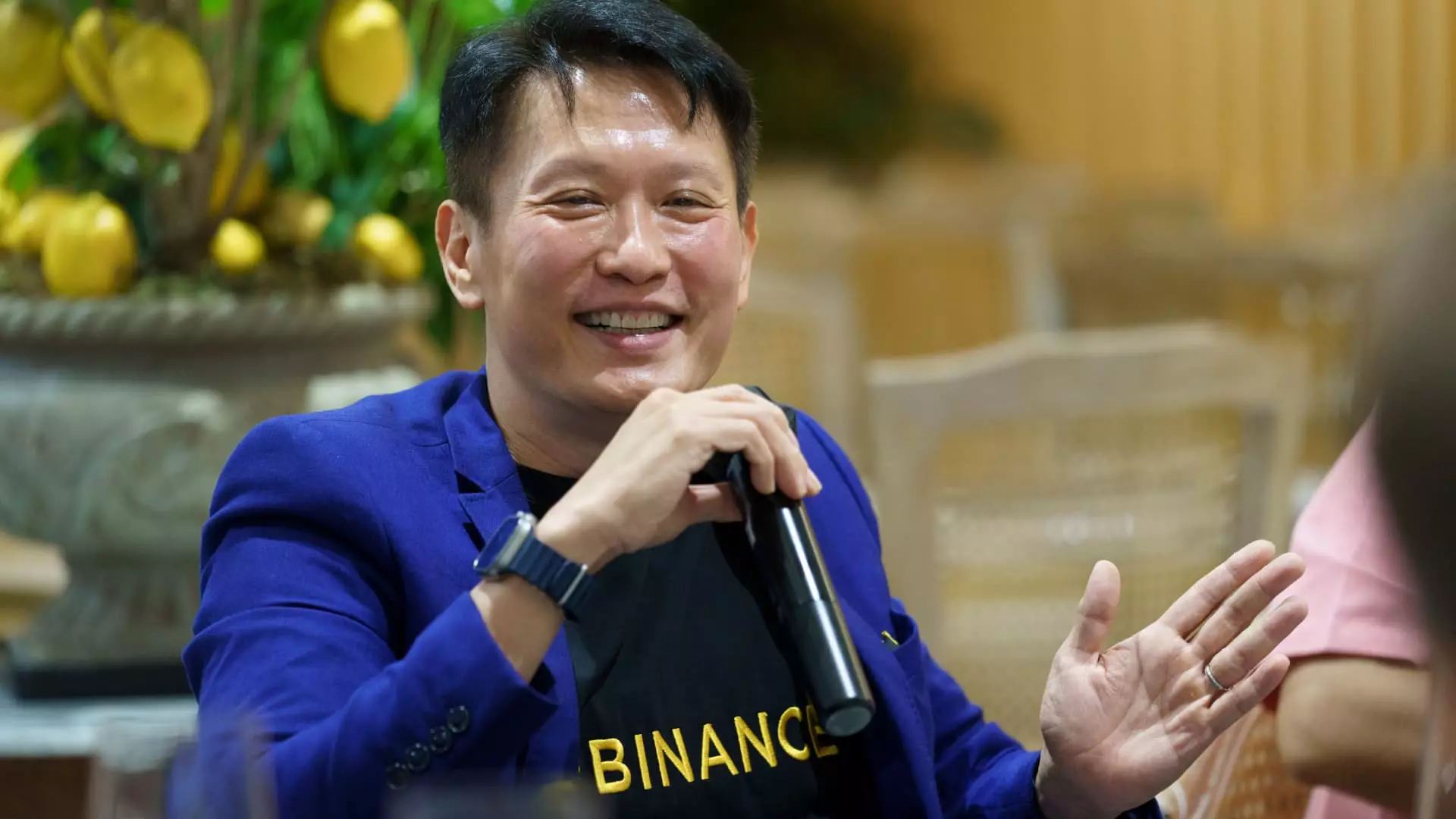The cryptocurrency industry has recently witnessed a remarkable metamorphosis, particularly due to the political landscape shift that has taken place under the Trump administration. Observers and industry insiders would be remiss to ignore this transformation, especially in light of bold claims made by Binance’s CEO, Richard Teng. Describing the new political climate as a “fantastic” reset, Teng’s remarks seem to encapsulate the broader sentiment pervasive among crypto advocates, who view these changes as an opportunity for growth and legitimacy.
While some may deem it controversial to hail the Trump administration for anything, it is difficult to dismiss the observable benefits that the crypto world is currently experiencing. Once branded as almost a pariah within financial circles, Binance has remarkably transitioned from a largely unregulated entity to a legitimate player in Washington’s corridors of power. This is not merely faint praise; it signifies the potential evolution of cryptocurrency from the shadows into the mainstream business arena, with the prospect of serious financial backing.
Revenge of the Regulators
Despite the optimism, one cannot ignore the history that haunts Binance. The hefty $4.3 billion settlement the company reached with U.S. regulators is a stark reminder of the turbulent road it has traveled. Teng openly acknowledges the compliance missteps that characterized Binance’s early days, emphasizing their commitment to amend past errors. His candidness on these matters adds to the narrative of redemption rather than denial and demonstrates a conscious pivot toward becoming a responsible corporate entity.
The concept of “Choke Point 2.0” underscores the alleged coordinated effort by legacy banks to oppress cryptocurrency firms during the previous administration—a narrative that resonates within the community. However, this landscape has been dramatically reshaped, paving the way for a proactive approach toward cryptocurrency regulation and integration into the financial fabric of society. Under Trump, there’s an acknowledged readiness to facilitate a framework where crypto can coexist with traditional financial systems rather than standing in opposition.
The Trump Family Connection
The potential partnership with the Trump family hints at a new era for Binance. Not only could this financial collaboration solidify Binance’s standing, but it could also fundamentally alter the public perception of cryptocurrency. Such alliances can provide a robustness that transcends the conventional uncertainties of the crypto market, possibly securing a favorable position against regulatory headwinds. While Teng remains cautious about the details, reading between the lines suggests a strategic play to infuse the crypto sector with renewed vigor.
Teng’s comments on his cautious optimism reinforce the notion that the integration of traditional political figures with groundbreaking tech ventures could yield revolutionary results. Yet, it raises critical questions about the influence of politics on innovative technology. Can we trust that powerful political names coupled with crypto will act in the greater public’s interest? Or are we preparing to witness another cycle of cronyism masquerading as progress?
Expansion Amidst Challenges
The swift rise in Binance’s user base—from 170 million to 265 million users in just a year—demonstrates an exponential growth trajectory powered by the newfound political realities. Regions like Japan, Australia, and the UAE have opened their regulatory doors to Binance, signaling a global acknowledgment of its evolution from a dubious entity to a compliant one. Despite its success, however, the company’s complex regulatory challenges loom large, particularly with the ongoing Securities and Exchange Commission’s (SEC) scrutiny that remains unresolved.
The unfortunate imprisonment of Binance’s compliance officer in Nigeria serves as a sobering reminder of the complexities and risks involved in global operations. This instance portrays a dichotomy between regulatory acceptance in some nations and harsh punitive actions in others. Yet, Teng’s unwavering optimism suggests that navigating these challenges can spark a new wave of institutional confidence in cryptocurrencies.
Future-Proofing Through Innovation
Teng’s comments regarding the transformative potential of merging artificial intelligence (AI) and the blockchain exemplify the forward-thinking ethos permeating the cryptocurrency sector today. As Binance takes strides in employing technology for security and compliance, it reinforces the necessity for innovation—where traditional competencies meet emerging technologies. Not only does this approach enhance operational excellence, but it also positions Binance as a leader in an increasingly competitive landscape.
Moreover, the recent $2 billion investment from an Emirati state-owned fund marks not only a monumental moment for Binance but potentially sets a precedent for future integrations of blockchain into AI and other tech industries. This convergence highlights that, despite regulatory pressures, opportunities abound within the interplay of finance and technology.
Overall, as we watch the unfolding narrative under Trump’s leadership, it prompts a deeper exploration of what we can expect from the world of cryptocurrency. As polarizing as it may seem, the landscape is crisp with potential—a dynamic environment teeming with both promise and pitfalls. What remains clear is that the next chapter in crypto may very well include voices from both the tech world and the political arena, crafting a story unlike any we have seen before.

